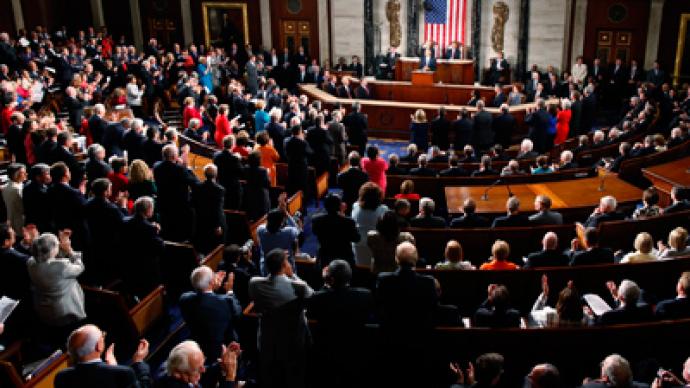Senators give Big Pharma huge present at taxpayers' expense

The bill that averted the fiscal cliff included a largely unnoticed section that granted world’s largest biotechnology firm a two-year delay in regulations of its drugs – even though the firm has just pleaded guilty in a federal fraud case.
The bill, H.R. 8, was passed with a paragraph that lawmakers included to give the biotechnology firm Amgen two years to sell Sensipar without government price regulations. Sensipar, an expensive prescription drug produced by Amgen and used by kidney dialysis patients, is projected to cost Medicare up to $500 million over the next two-year period, since the legislation delays Medicare price restraints of End Stage Renal Disease (ESRD) drugs, the New York Times reports.Section 632 of the bill announces the “two-year delay of implementation of oral-only ESRD-related drugs in the ESRD prospective payment system; monitoring.” Even though the bill does not specify Amgen by name, it mainly affects the sale of Sensipar, costing the government millions while allowing the firm to keep its prices unregulated.Amgen employs 74 lobbyists in Washington, DC and was the only company to lobby for this delay, Congressional aides told the Times. Most of the delay’s supporters are leaders of the Senate Finance Committee who have benefited from Amgen’s generous political donations. Critics of the measure discovered that Amgen had won a previous two-year delay already and consider the initiatives driven by personal gain.“That is why we are in the trouble we are in,” Dennis J. Cotter, a health policy researcher, told the Times. “Everybody is carving out their own turf and getting it protected, and we pass the bill on to the taxpayer.”Legislatives aides who support the delay said it would give providers like Amgen the time they need to determine the details of federal reimbursements for kidney care.Most individuals who suffer from ESRD are eligible for Medicare, regardless of their age. Medicare spent about $10.1 billion on dialysis care for these patients in 2011. But the US Government Accountability Office published a report last month that showed a 23 percent decrease in use of ESRD drugs from 2007 to 2011. Still, Medicare is forced to pay a bundle rate for the drugs, and has been paying based on the 2007 utilization levels, which was $650 million to $880 million more than it needed.Amgen has also been charged for illegally marketing one of its anti-anemia drugs, Aranesp. The firm pleaded guilty last month after a federal criminal investigation discovered evidence of its unlawful engagements. The company must now pay a $762 million settlement, which is its largest yet, but makes a small dent in its $15.6 billion annual revenue.Still, two weeks after pleading guilty, Amgen was granted another break with the fiscal cliff bill’s section that allows the firm to keep its prices high. Lobbyists and Congressional aides told the Times that many of them first discovered the new language when the final bill was publicly posted, just hours before it was voted upon. With little time left to avert the fiscal cliff, lawmakers approved the bill.














